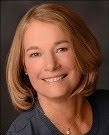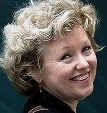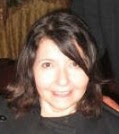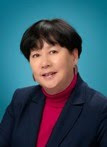By Divina Infusino
This week, I listened to a group of book publicists, agents and authors discuss the major trends, thoughts and gossip that emerged from the 2011 Book Expo America. I did not attend. So I was curious to hear the takeaways of those who did travel to the publishing world’s biggest annual sales event held this year in NYC at the end of May.
At first, the 30 people who gathered in a conference room stuck to the agenda. People discussed three major BEA themes:
* Within the next 12 months, nearly every major publisher will launch an e book-only imprint. At the 2010 BEA, e books were an afterthought. In 2011, with Barnes and Noble and Borders shuttering so many brick and mortar stores in the past few months, e books took center stage. However, it appears that New York publishers are thinking that e books will function rather like a farm team for the major leagues. That is, if any e book from these specialty imprints actually sells in significant numbers, maybe the parent publisher will release it in a bound form.
The implication from this line of thinking is that, in the near future, printed books may be reserved only for the best selling titles. Everything else will be available on Kindle, the Nook, iPad, Google books or some other yet-to-be-invented digital format. The publishing pros in the conference room shed a few tears for the near demise of the printed book. But fewer than they used to.
* Amazon.com is expanding from book distributor to book publisher. It recently hired the former CEO of the Time Warner Book Group, Larry Kirshbaum, to open its new NYC editorial offices.
* Successful tween authors rank as the current rock stars of the book world. The evidence? Tween publishers threw the most lavish BEA parties.
Soon after these observations on BEA, the conversation in the conference room turned to the two major questions that seem to eventually dominate any discussion on the publishing industry.
1. If books will be distributed mostly in digital form and authors must increasingly bear the responsibility for marketing their books themselves, what will be the role of book publishers?
2. Do Twitter and Facebook really promote and sell books?
On the first question, the jury is still way out. Before, publishers acted as the gatekeepers, the filter for the reading public. However, with publishers taking fewer risks and releasing fewer titles (and paying authors less for them), anything can happen at this point. Well-known authors may well decide to act as their own publishers. New or riskier authors who are comfortable with technology and self-marketing may opt for self-distribution.
On the second question, the comments were far more concrete. Here are the publishing pro’s tips for successful Facebook and Twitter efforts around a book:
- Approximately 1/3 of your posts should be personal; About 1/3 of your posts should offer something of value—a link to a thought-provoking or informative article or video; The final 1/3 can focus on the content of your book. Regularly excerpt a few intriguing lines. Let people know where you are speaking, if you are appearing on a radio show, etc.
- Try to make your tweets funny or controversial. They get retweeted the most.
- Tweet the same message more than once a day-- as much as four times in a single day. People usually read only their most recent Twitter feeds. They could easily miss yours if you only give them one chance.
- When you post on Facebook, start a conversation with your followers. Ask a question or make a statement that encourages others to comment.
- Use your authentic voice in your social media postings. Be creative. Serve do not sell. And above all, be entertaining. However, no one had an answer for how you should be entertaining if you are not a comedian or entertainer by nature, or if being serious or reclusive is your “authentic” voice.
The meeting on BEA underscored for me that the old rules around publishing are evaporating and new possibilities but also new demands abound.
Only one criteria remains constant: Make sure you write a good book.












0 comments:
Post a Comment